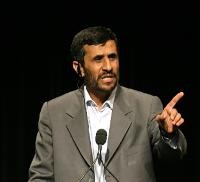This essay was originally published as part of the Middle East Institute's Viewpoints Special Edition: "The Iranian Revolution at 30," part of asix-part series focusing on the turning-point events of 1979 in theMiddle East. "The Iranian Revolution at 30" can be read in full here. For Iran, the past is always present. A paradoxical combination of pride in Iranian culture and a sense of victimization have created a fierce sense of independence and a culture of resistance to dictation and domination by any foreign power among the Iranian people. Iranian foreign policy is rooted in these widely held sentiments. The Roots of Iranian Foreign Policy
Understanding Iran's foreign policy is the key to crafting sensible and effective policies toward Iran and requires, above all, a close analysis of the profound cultural and psychological contexts of Iranian foreign policy behavior.
Understanding Iranian Foreign Policy

